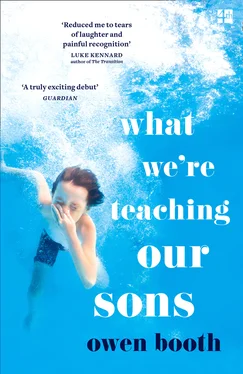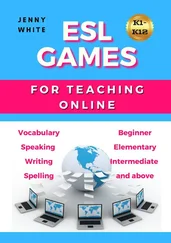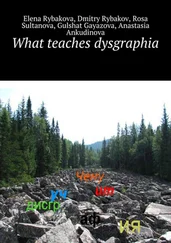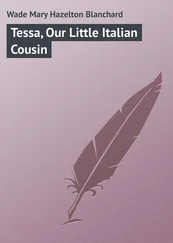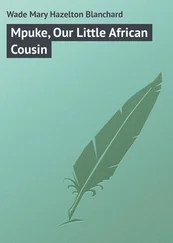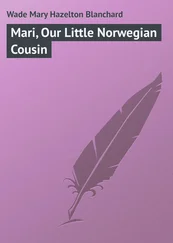The heartbroken men like to dress up as soldiers and superheroes. It’s embarrassing. How are we supposed to respond?
We don’t like the look of those skies.
‘We have a manifesto,’ the heartbroken men tell our sons. They want our sons to take their message back to the people. Their spokesmen step forward. There’s a banner too. They’re planning to hang it off a bridge or some other famous landmark.
‘Are those real guns?’ our sons ask.
‘We –’
‘Can we have a go on the guns?’ our sons ask.
‘No, you can’t have a go on the guns,’ we tell our sons. ‘Don’t let them have a go on the guns,’ we tell the heartbroken men, ‘what were you even thinking?’
The heartbroken men go quiet. They look at their feet.
‘Well?’
‘Fathers are superheroes,’ the heartbroken men say, quietly.
‘What?’
‘Superheroes,’ say the heartbroken men, starting to cry. Tears roll down their cheeks and fall upon the barren, scrubby ground.
This is turning into a disaster.
We should never have come.
We’re teaching our sons about philosophy.
We’re discussing logic, metaphysics, ethics and aesthetics. We’re covering philosophical methods of inquiry, the philosophy of language, the philosophy of mind. We’re asking our sons to consider ‘if there is something that it is like to be a particular thing’.
We’re on a boat trip up a Norwegian fjord and our sons are gathered on deck to listen to our lecture series. The spectacular mountains slide by as we talk about the sublime. The steel deck is wet from the recent rain.
Our sons are doing their best to feign interest, we have to give them that. They’re disappointed that there are no whales or polar bears to look at.
We’re trying to remember which famous philosopher lived in a hut up a Norwegian fjord.
Not all the children on deck are our sons. The boat is full of beautiful, strapping Norwegian teens on a school trip. They’re all six foot tall with no sense of personal space. They make our sons look stunted and reserved. They keep asking our sons if they have any crisps. This has been going on for five days and everyone is getting sick of it.
‘Why are we here?’ our sons ask us.
‘Yes!’ we say, pointing to our sons with the chalk, like we’ve seen lecturers do in films. ‘That’s exactly the crux of it!’
‘No,’ our sons say. ‘Why are we here, on a boat, halfway up Norway? When we could be exactly just about anywhere else?’
We have no answer to that one.
In the evenings everyone eats together in the dining hall and then the older sons sneak off to try to get a glimpse of the beautiful Norwegian teen girls and boys who gather at the back of the boat singing folk songs and playing acoustic guitars. We put the younger sons to bed and tell them about Descartes and Spinoza, try to pretend we don’t wish we were still teenagers.
Then we sit up long into the night nursing our glasses of aquavit and listening to the distant music and laughter.
We came to Norway in the hope of seeing the aurora borealis, but it’s summer and the sun never sets.
We’re teaching our sons about work.
We’re taking them to the office, the factory, the school, the hospital. They’re coming with us on film shoots, on home visits, on our window-cleaning rounds. They’re helping us to study the births and deaths of volcanic islands, to collect unpaid gambling debts, to project-manage billion-pound IT infrastructure transformation programmes.
Other children, we remind our sons, would be excited to see where their fathers work, what they do for a living.
We’re teaching our sons that it’s important to have a vocation. And that even if you don’t have a vocation you still have to turn up every day and pretend you care. We’re teaching our sons about compromise. We’re teaching them how to skive, how to slack off, how to take credit for other people’s work. We’re teaching them how to negotiate pay rises and how to have office affairs.
We tell our sons the stories of our many office affairs, back in the good old, bad old days.
We tell them about our affair with beautiful Stephanie from reception, and the magnificent sunset in Paris, and the helicopter ride, and the horrible accident. We tell them about our affair with Cathy the kickboxing champion, and how it ended with a spectacular roundhouse kick to our head. The gay dads tell the stories of their affairs with Steve and Mark and Sunny and John and David and Disco Clive and the two Andrews. The mothers of our sons, overhearing, start to tell stories of their own wild workplace affairs, their own crazy and dangerous pasts, which makes us all a bit nervous.
We go on for a while, until our sons start to wander off.
They’re convinced they’re going to be film stars and astronauts and famous comic book artists. They’re not interested in all the ways we managed to screw up our stupid lives.
We’re teaching our sons about whales.
Their habits and habitats, their evolutionary history, their cultural and economic relevance, the many stories told about them.
An adult male sperm whale has washed up, dead, on a beach on the Norfolk coast, and we’re following the clean-up effort on TV and the radio and the internet. People are worried that the build-up of gas inside the decomposing whale carcass may cause it to explode. Onlookers have been moved back to a safe distance.
Our sons are gripped by the unfolding drama.
We tell our sons about the long relationship between people and whales – about the whaling industry, and the historical uses of baleen and blubber and ambergris and whalebone. We tell them about the hunting of minke whales and pilot whales and bowhead whales and fin whales and sei whales and humpback whales and grey whales and so on. We tell them the stories of Jonah and the whale, and Moby Dick, and what we can remember of the plot of the film Orca the Killer Whale , and about the whale that got lost and swam up the Thames in 2006.
‘Did you see the whale?’ our sons ask, excitedly.
‘Well no,’ we say, ‘we were out of the country at the time, but –’
‘What happened to the whale?’ our sons ask. ‘Was it rescued?’
We explain to our sons that, despite the best efforts of various organisations to save it, the Thames whale died two days after it was first spotted, from convulsions caused by dehydration and kidney failure. Everyone was very sad, we say. People had taken to calling the whale ‘Diana’. It was one of those moments when the whole nation comes together.
‘Except you, because you were out of the country,’ our sons say.
‘Well that’s true, yes,’ we admit.
On the TV, scientists and whale removal experts and members of the local council are reviewing their options. Dynamite is considered. Or burial. Apparently the smell is becoming unbearable. Luckily it’s winter, so the tourist trade hasn’t been too adversely affected. Nobody knows what caused the whale to wash up here – whether it was illness or a wrong turn or just old age.
‘Maybe he was murdered,’ our sons say. ‘Maybe sharks did it, or other whales. Maybe he had it coming. Maybe he was a bad whale .’
Eventually the experts decide to load the whale onto the back of an eighteen-wheel lorry. It takes two days to lay the temporary metal road across the beach, twelve hours to roll the corpse of the whale onto a cradle, hoist it up onto the trailer, tie it down under yards of tarpaulin and plastic sheeting.
Then, under cover of night, a police escort leads the lorry and its stinking cargo through the dark lanes of East Anglia.
Читать дальше
